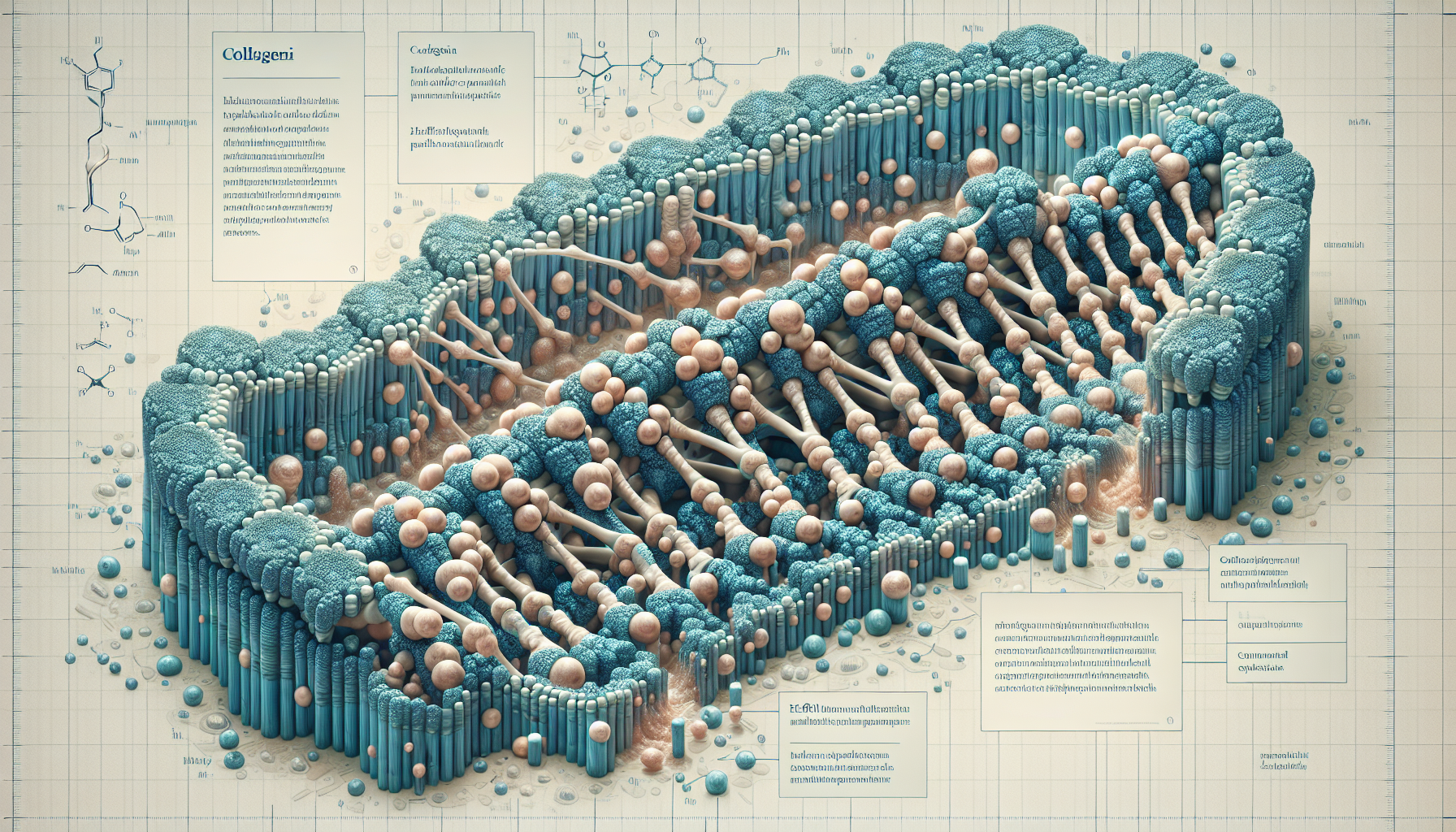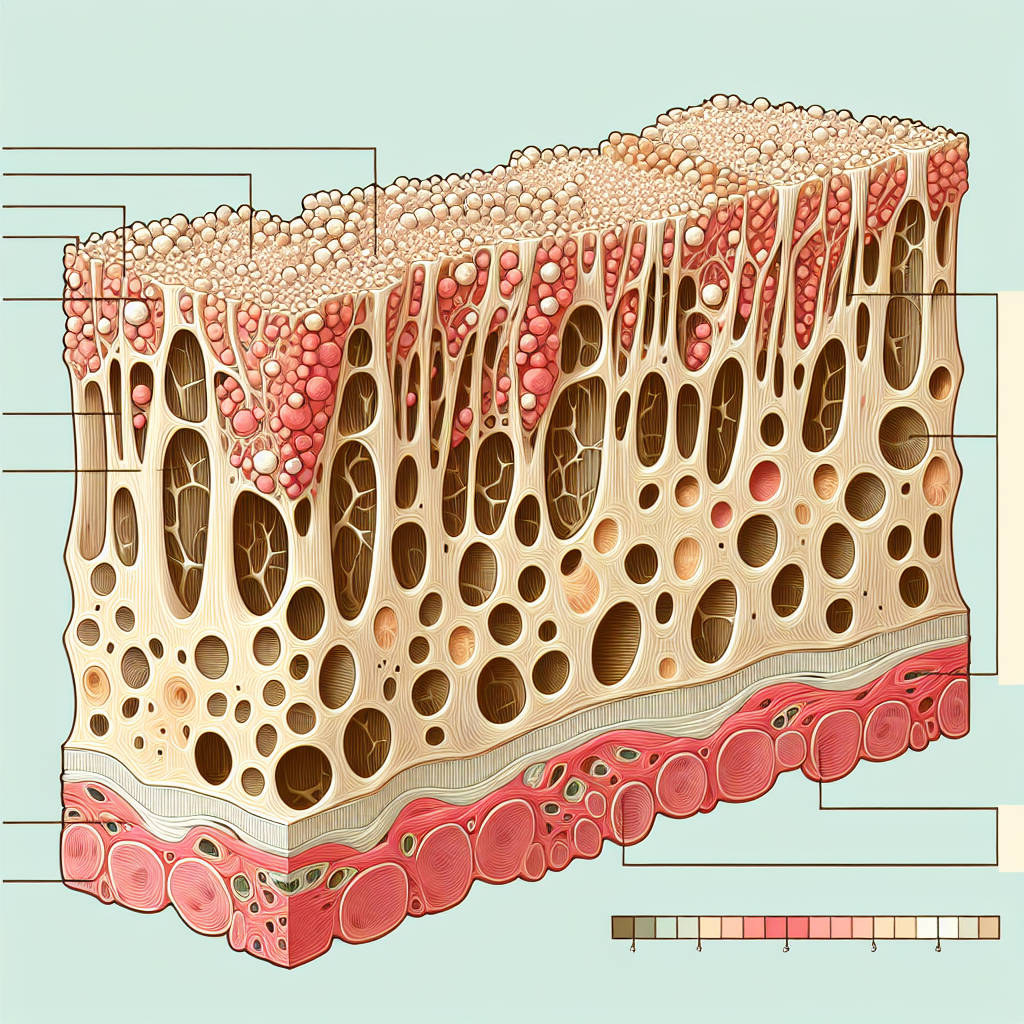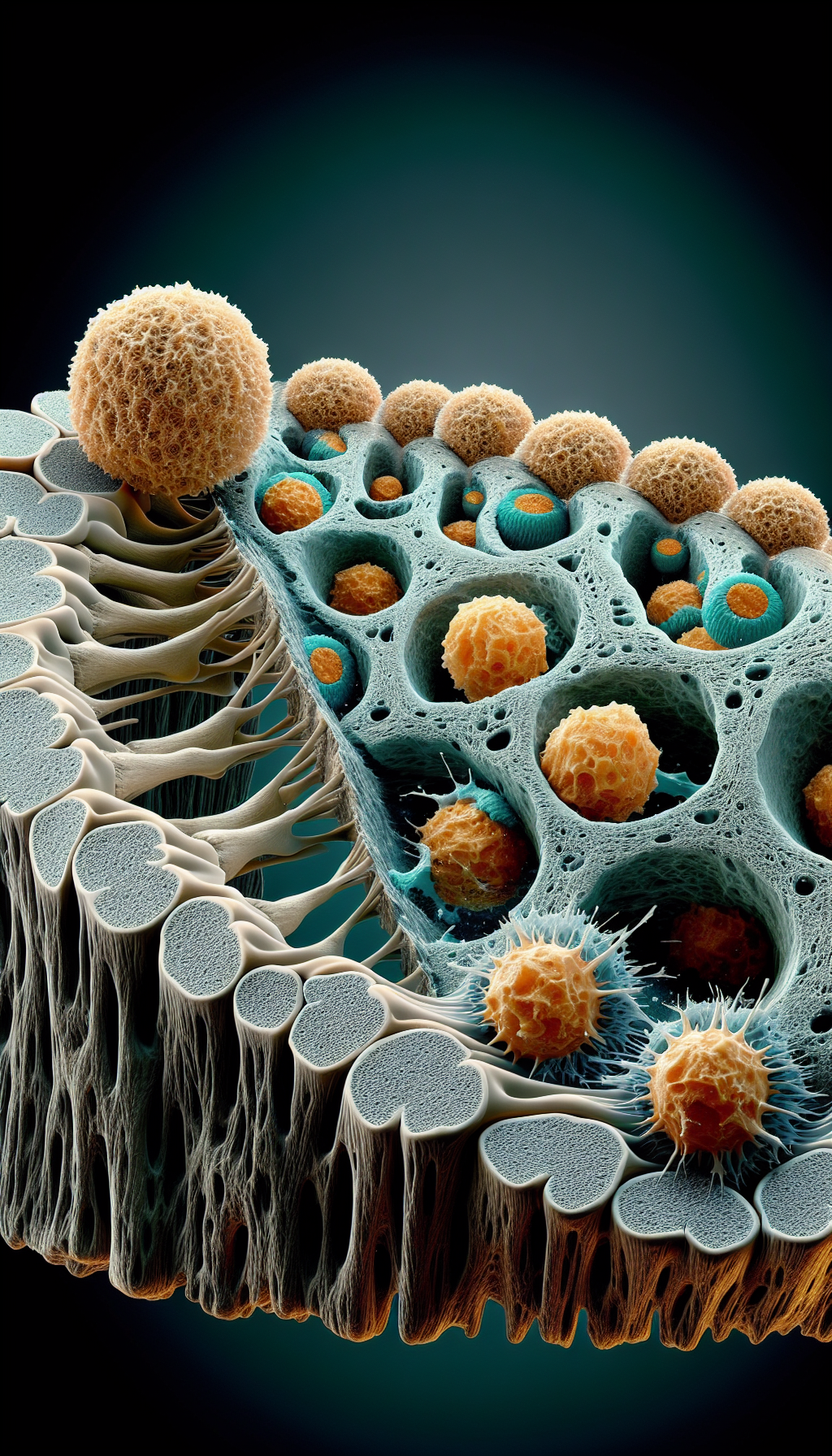Bone strength is a critical component of overall health and wellbeing, enabling us to engage in a wide array of activities and providing the structural support our bodies need. At the heart of bone strength lies a protein that is often associated with skin health but is just as vital to our bones: collagen. This article delves into the nuanced role collagen plays in maintaining and enhancing bone strength, as well as strategies to support collagen production for optimal bone health.
Collagen: The Unsung Hero of Bone Integrity
Collagen is the most abundant protein in the human body and serves as a key building block for bones, skin, muscles, tendons, and ligaments. In the context of bone health, collagen fibers provide a framework that contributes to both the strength and flexibility of bones. This framework is mineralized with calcium phosphate, which hardens the structure and gives bones their rigidity.
However, collagen’s role extends beyond mere scaffolding. It also impacts the bone’s ability to absorb shock without breaking and plays a role in the repair and regeneration of bone tissue. As we age, collagen production naturally declines, which can lead to a decrease in bone density and an increased risk of fractures.
To understand the broader implications of bone health, it is beneficial to explore Avix Health’s comprehensive guide on the subject, which provides valuable insights into maintaining strong and healthy bones throughout life.
Factors Affecting Collagen and Bone Health
Several factors can influence collagen levels in the body and, by extension, bone health. Nutritional deficiencies, particularly of vitamin C, which is crucial for collagen synthesis, can impair collagen production. Additionally, certain lifestyle choices, such as smoking or excessive alcohol consumption, can degrade collagen fibers and weaken bones.
Engaging in regular weight-bearing exercises is one of the most effective ways to stimulate collagen production in the bones. Activities like walking, running, and resistance training apply stress to the bone structure, which in turn signals the body to produce more collagen and strengthen the bones.
Enhancing Collagen for Bone Health
A diet rich in collagen-boosting nutrients is essential for bone health. Amino acids such as proline and glycine, found in protein-rich foods, are vital for collagen production. Additionally, minerals like calcium and phosphorus play a direct role in bone mineralization.
Supplementation can also play a role in supporting collagen production. Hydrolyzed collagen supplements, for example, are believed to be more easily absorbed by the body and can contribute to bone strength. However, it is important to consult with a healthcare professional before starting any supplement regimen.
The Science Behind Collagen and Bone Strength
Recent studies have shed light on the intricate relationship between collagen structure and bone strength. Collagen fibers are arranged in a cross-linked network that is optimized for both tensile strength and flexibility. When these fibers become damaged or degraded, the mechanical properties of bone are compromised.
Research also suggests that collagen’s role in bone health is not limited to its structural properties. Collagen peptides have been shown to stimulate the activity of osteoblasts, the cells responsible for bone formation, while inhibiting osteoclasts, the cells involved in bone resorption.
For those interested in the latest advancements in bone health, exploring innovative therapies for osteoporosis management can provide insight into how modern medicine is addressing bone density issues.
External Resources for Further Exploration
While this article provides a foundational understanding of collagen’s role in bone health, further information can be found through niche resources:
- The International Osteoporosis Foundation offers a plethora of resources on bone health, including detailed discussions on the role of nutrition and exercise in maintaining bone density.
- The Bone & Joint Initiative is a valuable resource for exploring the interplay between various bodily systems and bone health, emphasizing the importance of a holistic approach to musculoskeletal wellness.
- For a deep dive into the molecular biology of collagen, the Matrix Biology Journal presents cutting-edge research on the extracellular matrix components, including collagen, and their role in various biological functions.
Conclusion
Collagen’s role in bone health is multifaceted, contributing to both the structural integrity and metabolic processes of bone tissue. Understanding how to support collagen production through diet, lifestyle, and targeted exercise can lead to stronger bones and a reduced risk of fractures and bone diseases.
As research continues to evolve, it is clear that collagen will remain a central focus in the pursuit of optimal bone health. By taking proactive steps to support collagen synthesis and bone strength, individuals can help ensure a solid foundation for overall health and mobility well into the future.



